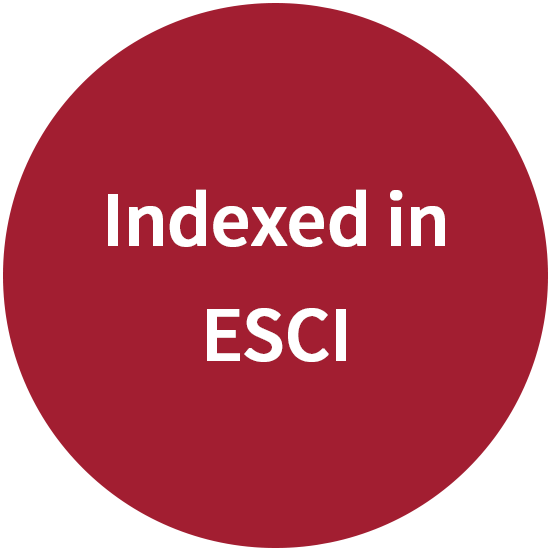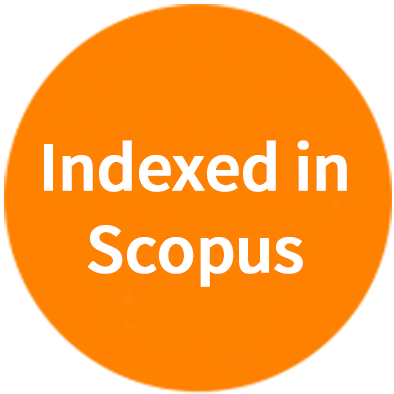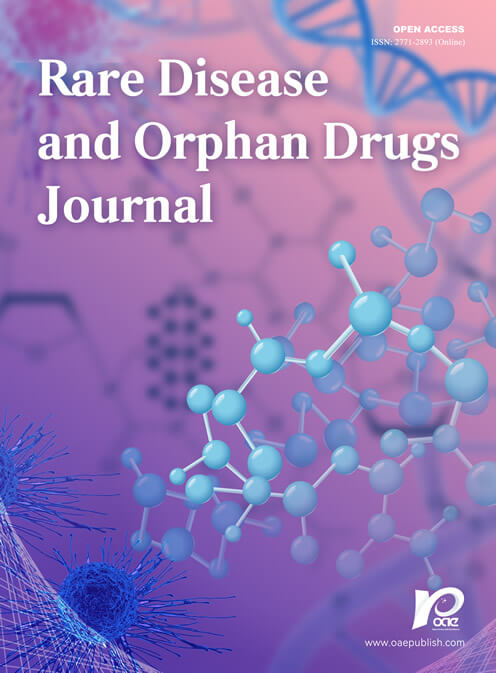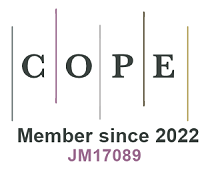REFERENCES
1. Anderson M, Elliott EJ, Zurynski YA. Australian families living with rare disease: experiences of diagnosis, health services use and needs for psychosocial support. Orphanet J Rare Dis 2013;8:22.
2. Kole A, Faurisson F. The voice of 12,000 patients: experiences and expectations of rare disease patients on diagnosis and care in Europe; Paris, France: EURORDIS - Rare Diseases Europe, 2009.
3. Grigull L, Mehmecke S, Rother AK, et al. Common pre-diagnostic features in individuals with different rare diseases represent a key for diagnostic support with computerized pattern recognition? PLoS One 2019;14:e0222637.
4. Zurynski Y, Deverell M, Dalkeith T, et al. Australian children living with rare diseases: experiences of diagnosis and perceived consequences of diagnostic delays. Orphanet Journal of Rare Diseases 2017;12:68. 10.1186/s13023-017-0622-4.
5. Blöß S, Klemann C, Rother AK, et al. Diagnostic needs for rare diseases and shared prediagnostic phenomena: Results of a German-wide expert Delphi survey. PLoS One 2017;12:e0172532.
6. Germeni E, Vallini I, Bianchetti MG, Schulz PJ. Reconstructing normality following the diagnosis of a childhood chronic disease: does “rare” make a difference? Eur J Pediatr 2018;177:489-95.
7. Houdayer F, Gargiulo M, Frischmann M, et al. The psychological impact of cryptic chromosomal abnormalities diagnosis announcement. Eur J Med Genet 2013;56:585-90.
8. Pelentsov LJ, Laws TA, Esterman AJ. The supportive care needs of parents caring for a child with a rare disease: A scoping review. Disabil Health J 2015;8:475-91.
9. Liberati A, Altman DG, Tetzlaff J, et al. The PRISMA statement for reporting systematic reviews and meta-analyses of studies that evaluate healthcare interventions: explanation and elaboration. BMJ 2009;339:b2700.
10. Moher D, Liberati A, Tetzlaff J, Altman DG. PRISMA Group. Preferred reporting items for systematic reviews and meta-analyses: the PRISMA statement. PLoS Med 2009;21:e1000097.
11. Atasoy R, Sevim C. Evaluation of coping strategies with stress of parents who have mentally disabled children in northern Cyprus. Universal Journal of Educational Research 2018;6:1129-40.
12. Berrocoso S, Amayra I, Lázaro E, et al. Coping with wolf-Hirschhorn syndrome: quality of life and psychosocial features of family carers. Orphanet J Rare Dis 2020;15:293.
13. Boettcher J, Denecke J, Barkmann C, Wiegand-Grefe S. Quality of life and mental health in mothers and fathers caring for children and adolescents with rare diseases requiring long-term mechanical ventilation. Int J Environ Res Public Health 2020;17:8975.
14. Dellenmark-Blom M, Chaplin JE, Jönsson L, et al. Coping strategies used by children and adolescents born with esophageal atresia - a focus group study obtaining the child and parent perspective. Child Care Health Dev 2016;42:759-67.
15. Dellve L, Samuelsson L, Tallborn A, Fasth A, Hallberg LR. Stress and well-being among parents of children with rare diseases: a prospective intervention study. J Adv Nurs 2006;53:392-402.
16. Douma M, Bouman CP, van Oers HA, et al. Matching psychosocial support needs of parents of a child with a chronic illness to a feasible intervention. Matern Child Health J 2020;24:1238-47.
17. Glenn AD. Using online health communication to manage chronic sorrow: mothers of children with rare diseases speak. J Pediatr Nurs 2015;30:17-24.
18. Hilliard ME, Tully C, Monaghan M, Wang J, Streisand R. Design and development of a stepped-care behavioral intervention to support parents of young children newly diagnosed with type 1 diabetes. Contemp Clin Trials 2017;62:1-10.
19. Kountz-Edwards S, Aoki C, Gannon C, et al. The family impact of caring for a child with juvenile dermatomyositis. Chronic Illn 2017;13:262-74.
20. Krabbenborg L, Vissers LE, Schieving J, et al. Understanding the psychosocial effects of wes test results on parents of children with rare diseases. J Genet Couns 2016;25:1207-14.
21. Lakshmanan A, Kubicek K, Williams R, et al. Viewpoints from families for improving transition from NICU-to-home for infants with medical complexity at a safety net hospital: a qualitative study. BMC Pediatr 2019;19:223.
22. Lauder B, Sinclair PM, Maguire J. Mothers’ experience of caring for a child with early onset scoliosis: A qualitative descriptive study. J Clin Nurs 2018;27:e1549-60.
23. Merker VL, Plotkin SR, Charns MP, et al. Effective provider-patient communication of a rare disease diagnosis: A qualitative study of people diagnosed with schwannomatosis. Patient Educ Couns 2021;104:808-14.
24. Pelentsov LJ, Fielder AL, Laws TA, Esterman AJ. The supportive care needs of parents with a child with a rare disease: results of an online survey. BMC Fam Pract 2016;17:88.
25. Picci RL, Oliva F, Trivelli F, et al. Emotional burden and coping strategies of parents of children with rare diseases. J Child Fam Stud 2015;24:514-22.
26. Rice DB, Carboni-Jiménez A, Cañedo-Ayala M, et al. Perceived benefits and facilitators and barriers to providing psychosocial interventions for informal caregivers of people with rare diseases: a scoping review. Patient 2020;13:471-519.
27. Senger BA, Ward LD, Barbosa-Leiker C, Bindler RC. Stress and coping of parents caring for a child with mitochondrial disease. Appl Nurs Res 2016;29:195-201.
28. Shapiro E, Lourenço CM, Mungan NO, et al. Analysis of the caregiver burden associated with Sanfilippo syndrome type B: panel recommendations based on qualitative and quantitative data. Orphanet J Rare Dis 2019;14:168.
29. Siddiq S, Wilson BJ, Graham ID, et al. Experiences of caregivers of children with inherited metabolic diseases: a qualitative study. Orphanet J Rare Dis 2016;11:168.
30. Silibello G, Vizziello P, Gallucci M, et al. Daily life changes and adaptations investigated in 154 families with a child suffering from a rare disability at a public centre for rare diseases in Northern Italy. Ital J Pediatr 2016;42:76.
31. Simpson A, Ross R, Porter J, et al. Adrenal insufficiency in young children: a mixed methods study of parents’ experiences. J Genet Couns 2018;27:1447-58.
32. Somanadhan S, Larkin PJ. Parents’ experiences of living with, and caring for children, adolescents and young adults with Mucopolysaccharidosis (MPS). Orphanet J Rare Dis 2016;11:138.
33. Toledano-Toledano F, Luna D. The psychosocial profile of family caregivers of children with chronic diseases: a cross-sectional study. Biopsychosoc Med 2020;14:29.
34. van de Loo KFE, Custers JAE, Koene S, et al. Psychological functioning in children suspected for mitochondrial disease: the need for care. Orphanet J Rare Dis 2020;15:76.
35. van der Kloot WA, Hamdy NAT, Hafkemeijer LCS, et al. The psychological burden of an initially unexplained illness: patients with sternocostoclavicular hyperostosis before and after delayed diagnosis. Health Qual Life Outcomes 2010;8:97.
36. Witt S, Dellenmark-Blom M, Dingemann J, et al. Quality of life in parents of children born with esophageal atresia. Eur J Pediatr Surg 2019;29:371-7.
37. Wu YH, Sun FK, Lee PY. Family caregivers’ lived experiences of caring for epidermolysis bullosa patients: a phenomenological study. J Clin Nurs 2020;29:1552-60.
38. Yamaguchi K, Wakimizu R, Kubota M. Difficulties in daily life and associated factors, and QoL of children with inherited metabolic disease and their parents in Japan: a literature review. JIMD Rep 2017;33:1-10.
39. Zengin M, Yayan EH, Akıncı A. Difficulties experienced by Turkish parents and their coping strategies: children with mucopolysaccharidosis. J Pediatr Nurs 2020;53:e142-8.
40. McConkie-Rosell A, Hooper SR, Pena LDM, et al. ; Undiagnosed diseases network. Psychosocial profiles of parents of children with undiagnosed diseases: managing well or just managing? J Genet Couns 2018;27:935-46.
41. Heuyer T, Pavan S, Vicard C. The health and life path of rare disease patients: results of the 2015 French barometer. Patient Relat Outcome Meas 2017;8:97-110.
42. Llubes-Arrià L, Sanromà-Ortíz M, Torné-Ruiz A, et al. Emotional experience of the diagnostic process of a rare disease and the perception of support systems: A scoping review. J Clin Nurs 2022;31:20-31.
43. Depping MK, Uhlenbusch N, von Kodolitsch Y, et al. Supportive care needs of patients with rare chronic diseases: multi-method, cross-sectional study. Orphanet J Rare Dis 2021;16:44.
44. McMullan J, Crowe AL, Bailie C, et al. Improvements needed to support people living and working with a rare disease in Northern Ireland: current rare disease support perceived as inadequate. Orphanet J Rare Dis 2020;15:315.
45. Waldron R, Hall K. Psychosocial support for families following a child’s diagnosis of type 1 diabetes. Diabetes Care for Children & Young People 2020;9.
46. Masulani-Mwale C, Kauye F, Gladstone M, Mathanga D. Development of a psycho-social intervention for reducing psychological distress among parents of children with intellectual disabilities in Malawi. PLoS One 2019;14:e0210855.
47. Martin K, Geuens S, Asche JK, et al. Psychosocial recommendations for the care of children and adults with epidermolysis bullosa and their family: evidence based guidelines. Orphanet J Rare Dis 2019;14:133.
48. Kaplan M. SPIKES: a framework for breaking bad news to patients with cancer. Clin J Oncol Nurs 2010;14:514-6.
49. Ahanotu CJ, Ibikunle Po, Hammed AI. Burden of caregiving, social support and quality of life of informal caregivers of patients with cerebral palsy. Turkish Journal of Kinesiology 2018;4:58-64.
50. Bogart KR, Frandrup E, Locke T, et al. “Rare place where I feel normal”: Perceptions of a social support conference among parents of and people with Moebius syndrome. Res Dev Disabil 2017;64:143-51.
51. Bogart KR, Hemmesch AR. Benefits of support conferences for parents of and people with Moebius syndrome. Stigma and Health 2016;1:109-21.
52. Haukeland YB, Fjermestad KW, Mossige S, Vatne TM. Emotional experiences among siblings of children with rare disorders. J Pediatr Psychol 2015;40:712-20.
53. NHS. European reference centres networks. Available from: https://www.england.nhs.uk/publication/uk-endorsed-ern-centres/ [Last accessed on 31 Mar 2022].
54. Smith M, Alexander E, Marcinkute R, et al. Telemedicine strategy of the European Reference Network ITHACA for the diagnosis and management of patients with rare developmental disorders. Orphanet J Rare Dis 2020;15:103.
55. Global Commission. Ending the diagnostic odyssey for children with a rare disease year one report. Available from: https://www.globalrarediseasecommission.com/Report [Last accessed on 31 Mar 2022].
56. Global Commission. Ending the diagnostic odyssey for children with a rare disease. Available from: https://www.globalrarediseasecommission.com/OurWork [Last accessed on 31 Mar 2022].
57. NHS. Highly specialised services. Available from: https://www.england.nhs.uk/commissioning/spec-services/highly-spec-services/ [Last accessed on 31 Mar 2022].
58. BBS UK. Overview of BBS clinics service. Available from: https://bbsuk.org.uk/bbs-clinics-overview/ Last accessed on 31 Mar 2022].
59. Department of Health & Social Care. The UK rare diseases framework. Available from: https://www.gov.uk/government/publications/uk-rare-diseases-framework [Last accessed on 31 Mar 2022].








